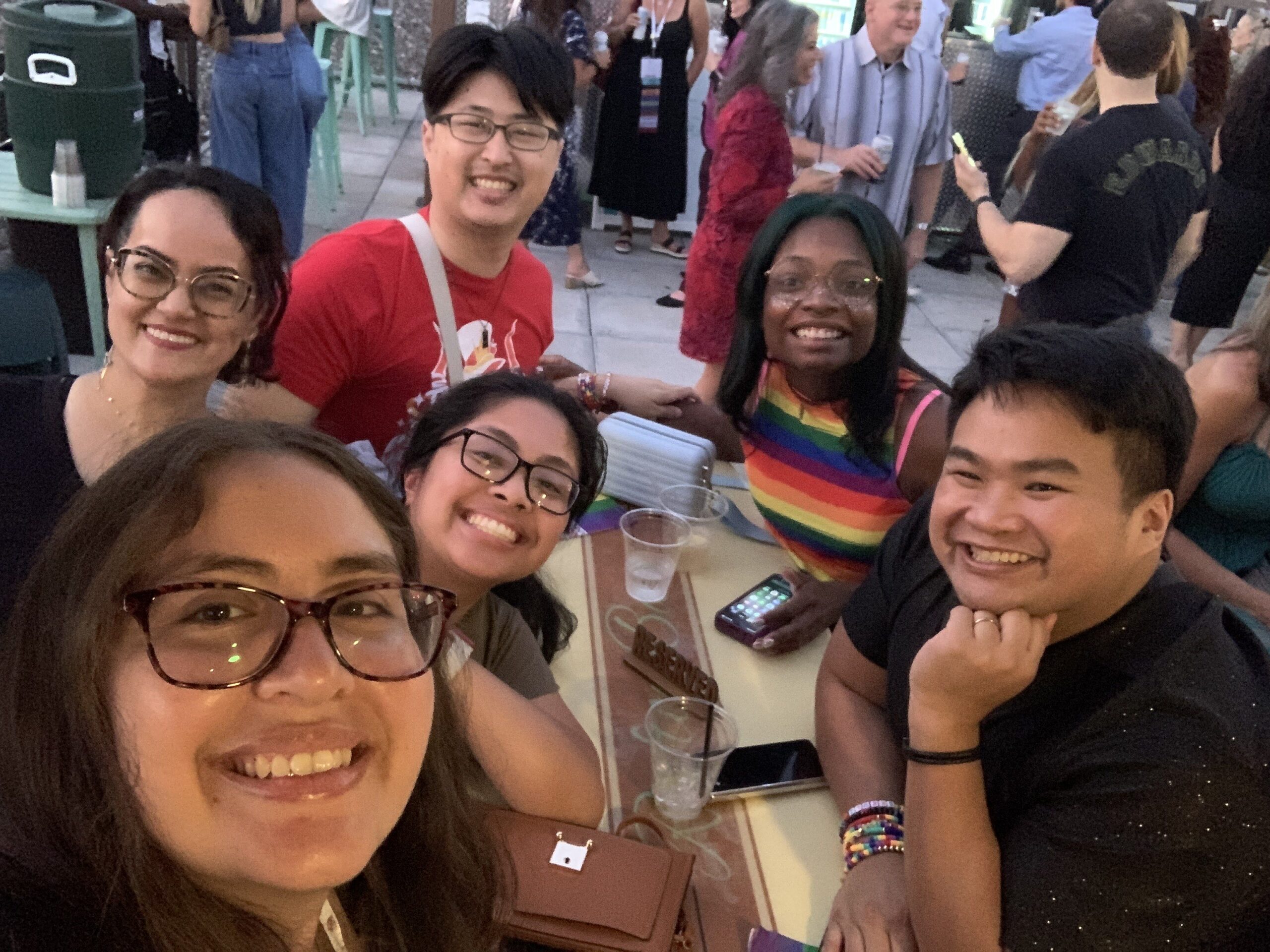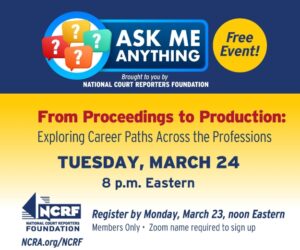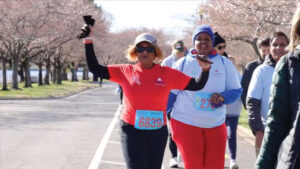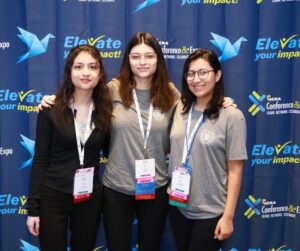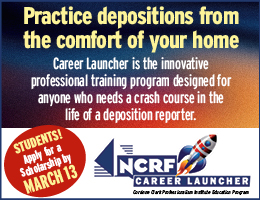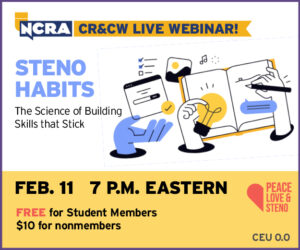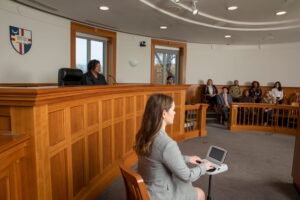An engineer by training, David Le was first turned onto stenography when he was selected to sit as a juror in a civil case. Years later, after the birth of his daughter and looking for a change, he decided to pursue court reporting as a career. He found that his love and aptitude for languages, video games, and music made it a perfect fit.
UTS | Your first career was as an engineer. How do you think your skills as an engineer translate to your skills as a stenographer?
DL | I think it’s definitely helped with using CAT software. Part of being an engineer is reading and understanding technical documentation, so it was pretty easy for me to pick up shortcuts and tools for editing my transcripts.
UTS | How do you think being a career-changer – starting out with this new career in your 30s – has helped you succeed in school?
DL | I truly believe that I learned from my mistakes from the first time I was in school. Especially with a full-time job and a newborn child, I had to really make good use of my time and be disciplined in my studies. What also helps is that I feel like there’s a lot less doubt about whether or not this is something that I really want to pursue. I already have an idea what to expect when it comes to actually working in the real world and the kind of questions to ask and the type of things I need to be aware of.
UTS | What was it that first sparked your interest in court reporting?
DL | It was definitely the machine. I thought the stenograph [machine] was really cool and when I really dug into it, I thought it would be something challenging and mentally stimulating to learn.
UTS | How do you feel your aptitude for music, video games, and languages aligns with learning stenography?
DL | When it comes to skillbuilding it helps to have the understanding that it takes time, patience, and tenacity to really excel at something. With respect to music and video games, there’s really an emphasis on having the perseverance to continually chip away at something that is difficult and analyze what you can do to reach your goals. It helps to have the awareness that sometimes you need to just step away for a while, let yourself process, and come back to it again at another time.
On the language side of things, I believe it really helped me with picking up theory really quickly. I grew up bilingual speaking English and Vietnamese, learned French in high school and Korean and Mandarin Chinese in college. I saw theory as just learning another language. I knew the best way to memorize and really internalize concepts was spaced repetition and spending a lot of time immersed in reading and thinking in steno.
UTS | What do you love about stenography?
DL | The machine first attracted me to the profession, but when I learned theory I was enamored. I learned Magnum Steno theory and everything seemed to click so well. I also love that your writing ends up being very personal. Dictionary building is definitely something I love to do.
UTS | Having a background in tech, what’s your take on the future of court reporting and the role technology plays?
DL | Tech always follows the latest fads. Being in this industry for over a decade has taught me that you have to adapt to the emerging technologies even if they won’t survive long-term. I believe the human element of court reporting will always be important and that technologies like AI can be used to assist us in ways to make our jobs easier. What’s important to take into consideration is having the correct safeguards and education in place so people understand how a technology can be ethically used and the ramifications of relying on technology that hasn’t been vetted long-term.
I feel like AI was an obvious target of discussion here, but stuff like CAT software, court reporting training software like EV360 and RTC [Realtime Coach], and things that court reporters use in their day-to-day such as audio recording technology and even Zoom I believe are important things to take into consideration when it comes to the impact of technology. At the end of the day these are tools to make us more effective at our jobs.
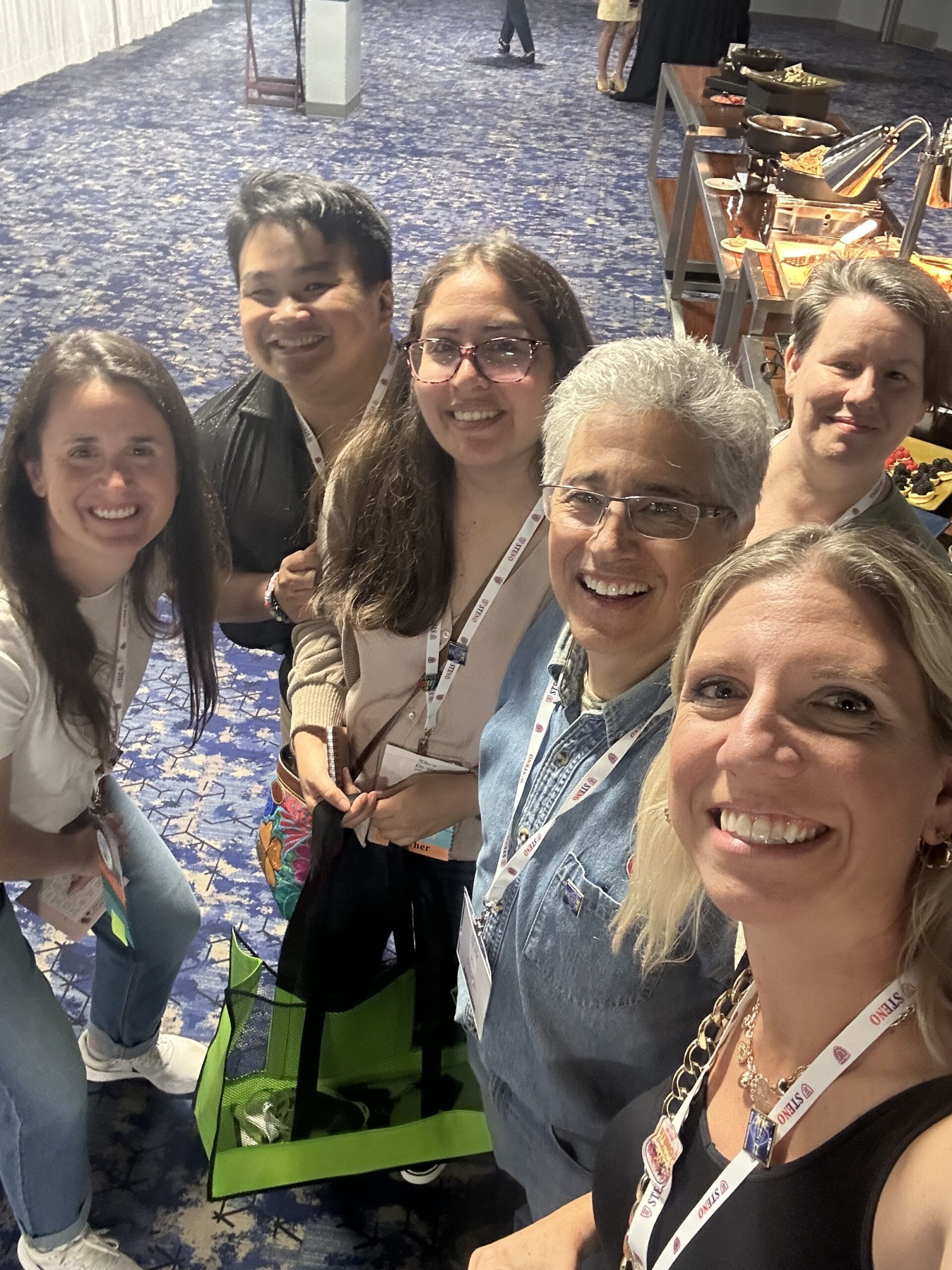
UTS | You attended the NCRA Conference & Expo in Minneapolis, Minn., this past summer. Can you tell us what you took away from that experience? Any plans to head to Bellevue, Wash., next summer?
DL | I had a great experience at the Conference. My favorite part was being able to see senior reporters write. I got to discuss Magnum Steno theory with Mark Kislingbury, FAPR, RDR, CRR, talk to a few firm owners in different states, and really get more insight into how differently everyone writes on their machine. I also got to meet my teacher and peers from class.
I came away from the Conference deeply inspired to do better and actually passed some speed tests immediately after. I am definitely planning on heading to Bellevue next year. There’s a Nokia office in Redmond, so I’m fairly familiar with the area and can’t wait to visit again.
UTS | Where do you see yourself in five years? What does your ideal career look like?
DL | My tentative plan is to be a court official, but what life has taught me is to be open to anything. Some of my mentors have mentioned to experiment a little, take some freelance work and sub in the courts here and there, and see what really clicks. But ideally, I’ll be working in a court with an interesting docket.
UTS | What are your other hobbies – besides stenography?
DL | Besides video games, I like working out. I think the strength training has definitely helped me avoid any back issues while writing for long periods of time.
David Le is a student at Allison Hall Reporting Education.
Missed previous issues of Up-to-Speed? Access them here.
